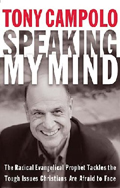Integrating Theology and Religious Education: Mary Elizabeth Moore’s “Teaching from the Heart”

Striving to unify educational theory with practice, Mary Elizabeth Moore’s Teaching from the Heart calls for an integration of theology and religious education. Her description of the dynamic unity thereby achieved draws heavily from the tenets of process philosophy and portrays a mutually informing, organic interconnectivity embodied by “people connecting to themselves, one another, social systems, the earth, and transcendent reality.” Cast in this light, the heart of teaching constitutes an aesthetic movement of energy, a living process that is grounded within God as the empowering center of existence. Moore develops a notion of incarnational teaching that emphasizes the phenomenological elements of education as lived experience and in terms of three distinct passions for openness, intersubjectivity, and caring. Concepts of (i) embodiment through deepening one’s awareness of both own and other’s experience, (ii) open spontaneity in the service of teaching through creative originality, and (iii) teaching-learning as a method of viewing the world through a plurality of pattern integrations all represent consistent themes recurring throughout her treatment of this topic.
While this study guide is clearly useful for any congregation that is closely affiliated with an institution of higher education, the profoundly respectful and engaged appreciation for existence that Moore is advocating can be just as beneficially applied to any other setting or aspect of life. Thus, anybody searching for ways to deepen their experience of presence in the world stands to gain much from this resource.



